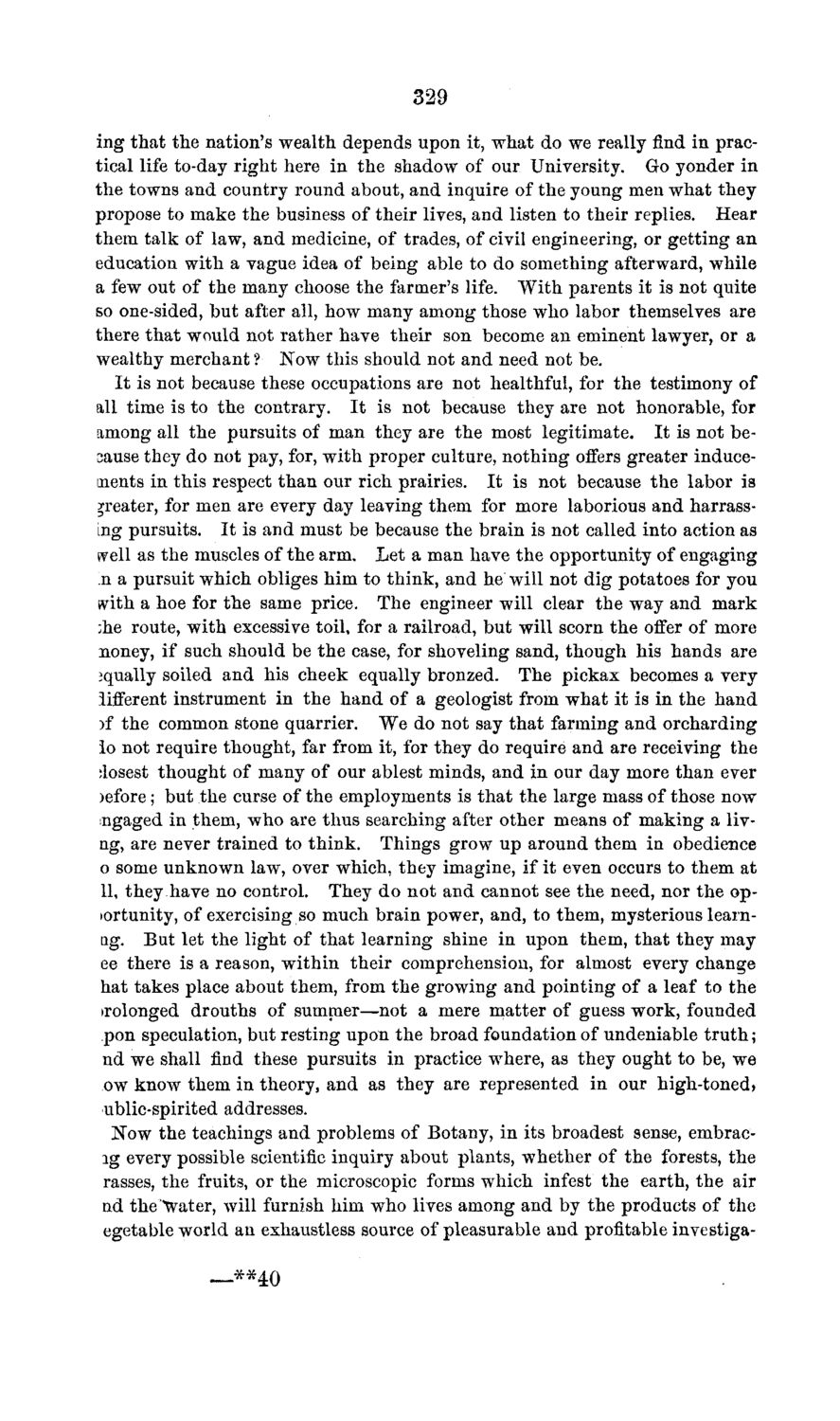| |
| |
Caption: Board of Trustees Minutes - 1869
This is a reduced-resolution page image for fast online browsing.

EXTRACTED TEXT FROM PAGE:
329 ing that the nation's wealth depends upon it, what do we really find in practical life to-day right here in the shadow of our University. Go yonder in the towns and country round about, and inquire of the young men what they propose to make the business of their lives, and listen to their replies. Hear them talk of law, and medicine, of trades, of civil engineering, or getting an education with a vague idea of being able to do something afterward, while a few out of the many choose the farmer's life. With parents it is not quite so one-sided, but after all, how many among those who labor themselves are there that would not rather have their son become an eminent lawyer, or a wealthy merchant ?• Now this should not and need not be. It is not because these occupations are not healthful, for the testimony of all time is to the contrary. It is not because they are not honorable, for among all the pursuits of man they are the most legitimate. It is not because they do not pay, for, with proper culture, nothing offers greater inducements in this respect than our rich prairies. It is not because the labor is greater, for men are every day leaving them for more laborious and harrassing pursuits. It is and must be because the brain is not called into action as well as the muscles of the arm. Let a man have the opportunity of engaging In a pursuit which obliges him to think, and he will not dig potatoes for you with a hoe for the same price. The engineer will clear the way and mark :he route, with excessive toil, for a railroad, but will scorn the offer of more noney, if such should be the case, for shoveling sand, though his hands are equally soiled and his cheek equally bronzed. The pickax becomes a very lifferent instrument in the hand of a geologist from what it is in the hand )f the common stone quarrier. We do not say that farming and orcharding lo not require thought, far from it, for they do require and are receiving the closest thought of many of our ablest minds, and in our day more than ever >efore; but the curse of the employments is that the large mass of those now ngaged in them, who are thus searching after other means of making a livng, are never trained to think. Things grow up around them in obedience o some unknown law, over which, they imagine, if it even occurs to them at 11, they have no control. They do not and cannot see the need, nor the op>ortunity, of exercising so much brain power, and, to them, mysterious leaning. But let the light of that learning shine in upon them, that they may ee there is a reason, within their comprehension, for almost every change hat takes place about them, from the growing and pointing of a leaf to the >rolonged drouths of summer—not a mere matter of guess work, founded pon speculation, but resting upon the broad foundation of undeniable truth; nd we shall find these pursuits in practice where, as they ought to be, we ow know them in theory, and as they are represented in our high-toned) ublic-spirited addresses. Now the teachings and problems of Botany, in its broadest sense, embracig every possible scientific inquiry about plants, whether of the forests, the rasses, the fruits, or the microscopic forms which infest the earth, the air nd the 'Water, will furnish him who lives among and by the products of the egetable world an exhaustless source of pleasurable and profitable investiga- —**40
| |